‘Ill-begotten gains’: Russian oligarchs named in new US sanction list over Ukraine invasion
They include Russia’s wealthiest men, judo training partners, former KGB agents, founder of a troll farm, and Vladimir Putin’s personal press secretary
Your support helps us to tell the story
From reproductive rights to climate change to Big Tech, The Independent is on the ground when the story is developing. Whether it's investigating the financials of Elon Musk's pro-Trump PAC or producing our latest documentary, 'The A Word', which shines a light on the American women fighting for reproductive rights, we know how important it is to parse out the facts from the messaging.
At such a critical moment in US history, we need reporters on the ground. Your donation allows us to keep sending journalists to speak to both sides of the story.
The Independent is trusted by Americans across the entire political spectrum. And unlike many other quality news outlets, we choose not to lock Americans out of our reporting and analysis with paywalls. We believe quality journalism should be available to everyone, paid for by those who can afford it.
Your support makes all the difference.Russian oligarchs were put on notice during the State of the Union address that the US was coming for their "ill-begotten gains".
Two days later, the White House announced the oligarchs who would be sanctioned and targeted by the Department of Justice’s new task force "KleptoCapture".
They include one of Russia’s wealthiest men, judo training partners, former KGB agents, the founder of a troll farm, and Vladimir Putin’s personal press secretary.
"We are joining with our European allies to find and seize your yachts your luxury apartments your private jets," Mr Biden said during the State of the Union.
It was a signal that the US would follow the lead of the European Union, which already imposed sanctions on many of Mr Putin’s inner circle.
These are the oligarchs now in the United States’ economic crosshairs.
Nikolai Tokarev, his wife Galina, daughter Mayya, and his two luxury real estate companies
Nikolai Tokarev is CEO of Transneft, a major Russian oil and gas company. Transneft transports Russian oil through pipelines and is one of Russia’s most important state-owned companies. The company is one of the main sponsors of the palace complex near Gelendzhik which is widely considered to be personally used by Putin. Tokarev served in the KGB in the 1980s and assumed control over large state assets in the 2000s as Putin consolidated power, and the pair have remained close friends ever since.
Boris and Arkady Rotenberg, Boris’ wife Karina, and his sons Roman and Boris, and Arkady’s sons Pavel and Igor, and daughter Liliya
Boris Rotenberg owns the SMP Bank and his brother Arkady is on the board of the Russian Ice Hockey Federation. Arkady was once Putin’s judo sparring partner and they still play hockey together. He is the owner of a complex of buildings on the Black Sea known as "Putin’s Palace" and has a stake in a construction contractor Mostotrest. They have benefited from billion-dollar contracts with Gazprom and the Sochi Winter Olympics, and were responsible for constructing a bridge linking Crimea to Russia following its annexation in 2014. Arkady owns a Russian yacht named "Rahil".
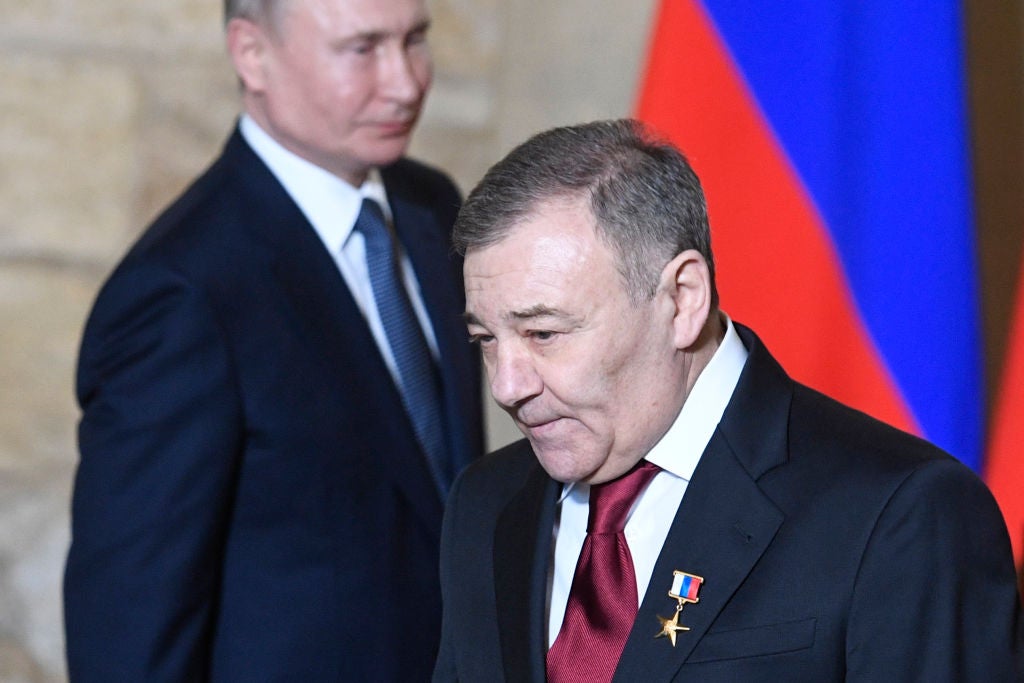
Sergei Chemezov, his wife Yekaterina, his son Stanislav, and stepdaughter Anastasiya
Sergei Chemezov and Putin were both KGB officers posted in Dresden. He is a member of the Supreme Council of ‘United Russia’ and holds senior positions in State-controlled firms. He chairs the Rostec conglomerate, the leading Russian state-controlled defence and industrial manufacturing corporation. Rostec, through its subsidiary Technopromexport, is planning to build energy plants in Crimea to increase its integration into the Russian Federation. Rosoboronexport, another subsidiary of Rostec, has supported the integration of Crimean defence companies into Russia’s defence industry.
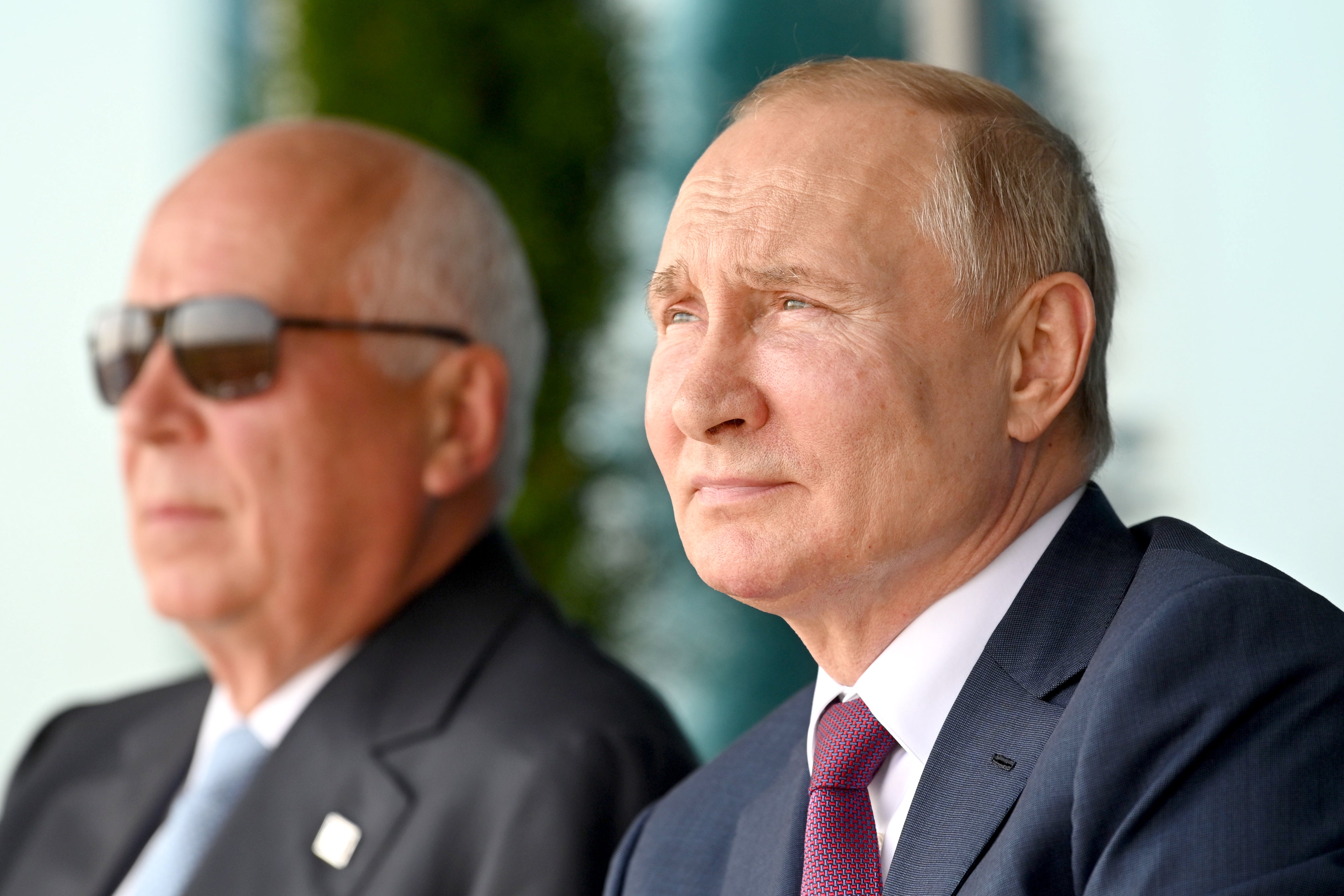
Igor Shuvalov, his five companies, his wife Olga, his son Evgeny and his company and jet, and his daughter Maria and her company
Igor Ivanovich Shuvalov is the chairman of State Development Corporation VEB.RF and a member of the Council of the Eurasian Economic Commission. He was previously a First Deputy Prime Minister of Russia, in which he changed budget rules to reflect an additional two million in population after the illegal annexation of Crimea.
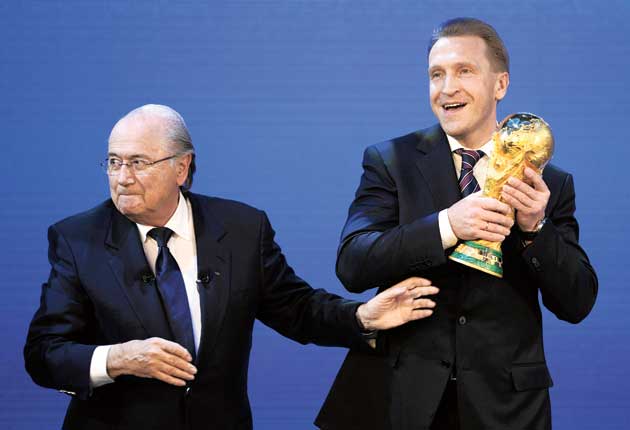
Yevgeniy Prigozhin, his three companies, his wife, Polina, his daughter Lyubov, and his son Pavel
Prigozhin finances the Internet Research Agency, better known as the Russian troll farm better that flooded Facebook with memes ahead of the 2016 election. The goal of the troll farm is the influence public opinion. The company targets Ukraine by influencing elections or perceptions of the annexation of Crimea or the conflict in Donbas.

Dmitry Peskov, Vladimir Putin’s press secretary
As the press secretary of President Putin, Dmitry Peskov has publicly defended Russia’s annexation of Crimea and Sevastopol. He called Ukrainian actions aimed at ending Russian occupation of the Crimean Peninsula a territorial claim against Russia, and has expressed opinions about the impossibility of negotiations with the Ukrainian authorities. He also said that there were no Russian troops in Donbas and that Western sanctions have no real effect on Russia.
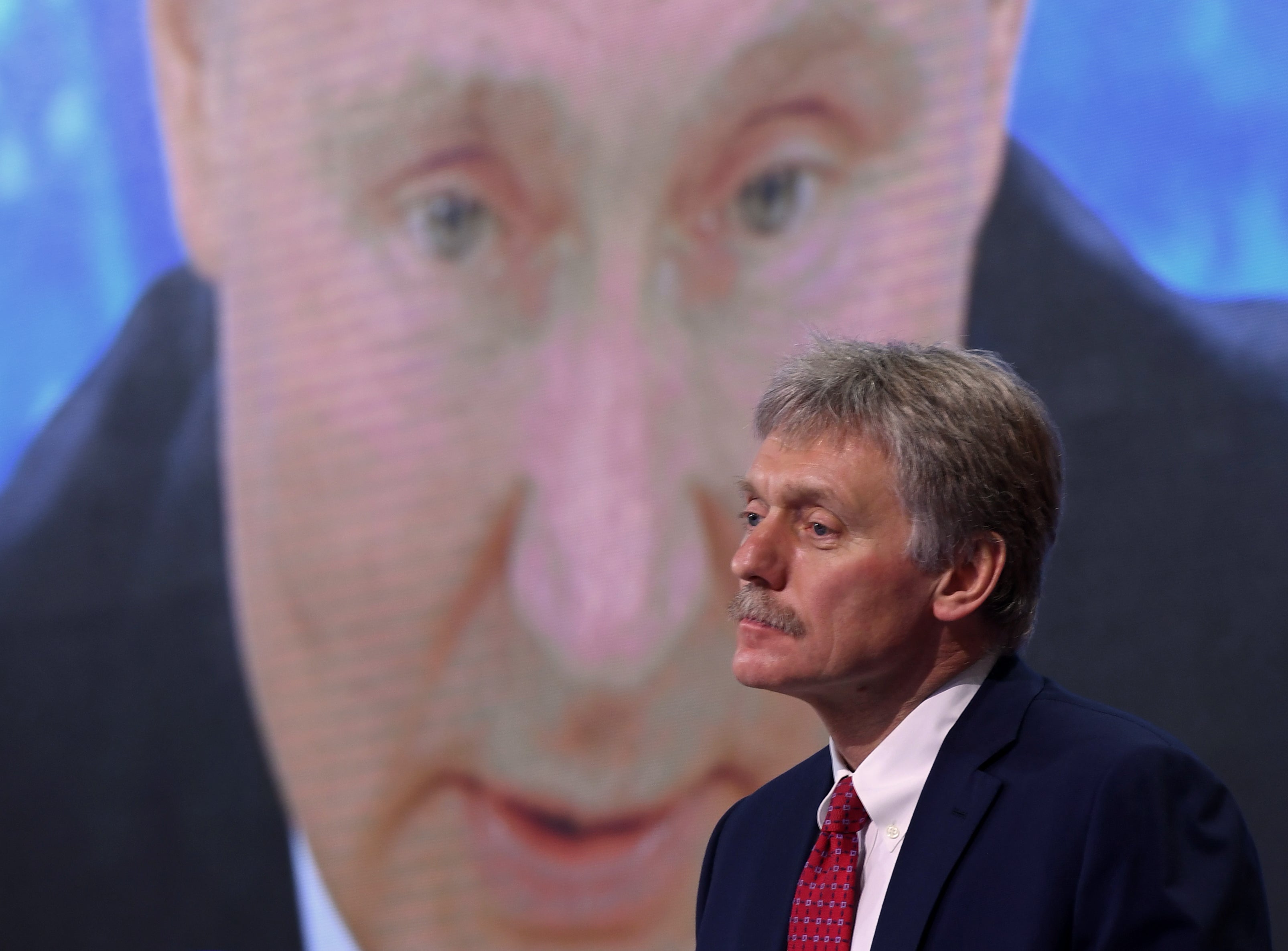
Alisher Usmanov, his private jet and his superyacht, just seized by Germany
Alisher Usmanov is one of Russia’s wealthiest men and is considered one of Putin’s favourite oligarchs. He reportedly solves Putin’s business problems and is entrusted with servicing financial flows. He is said to have paid $6m to Vladimir Putin’s influential adviser Valentin Yumashev. Usmanov has also leant the use of his luxurious residences for the personal use of former Russian president Dmitry Medvedev.
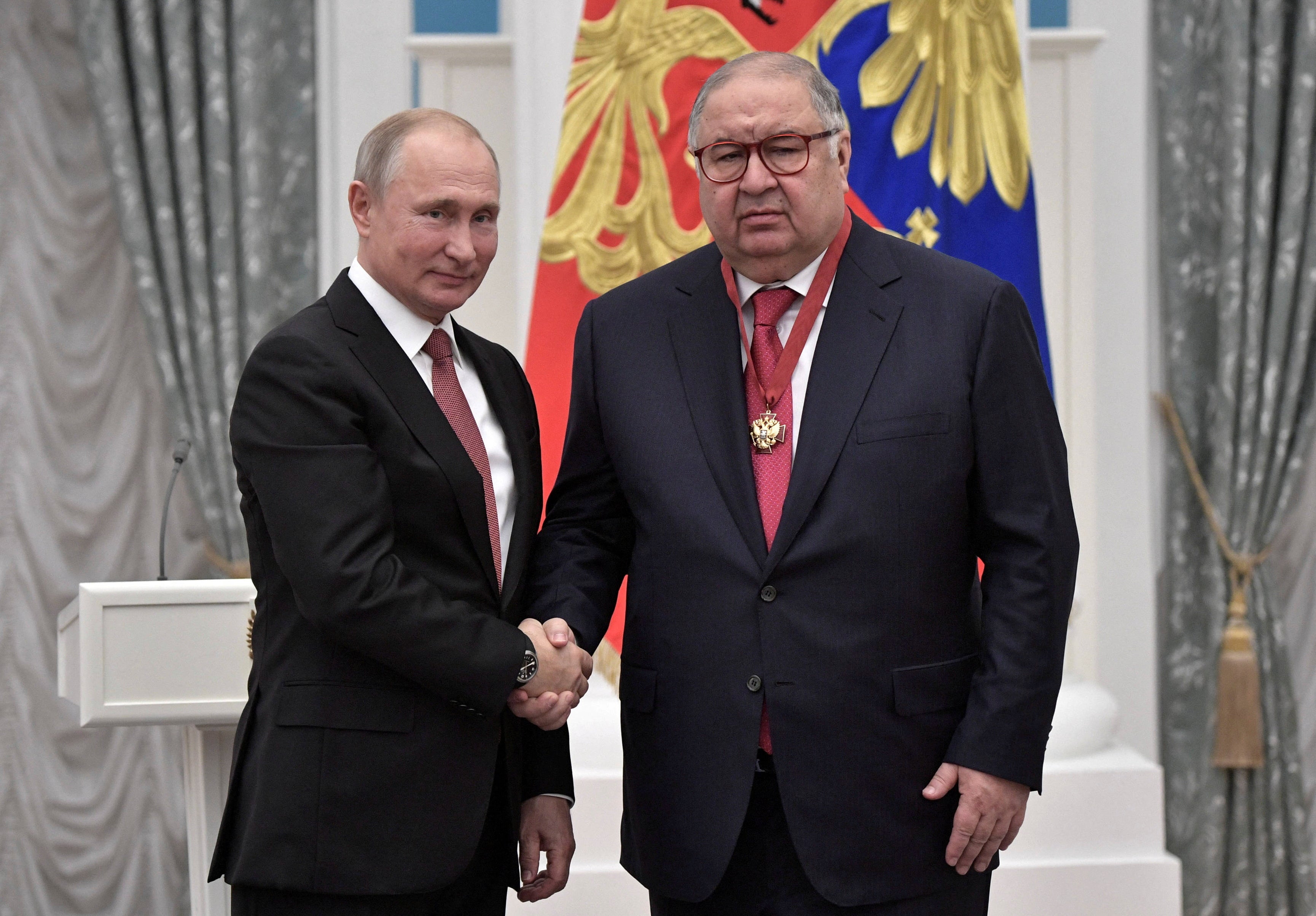
Visa restrictions were imposed on another 19 Russian oligarchs and their 47 family members and associates, although they were not identified by name in the list announced by the White House.
The Justice Department’s Task Force KleptoCapture, meanwhile, will enforce the sanctions and work to ensure they are not evaded or undermined through money laundering or cryptocurrency.

Join our commenting forum
Join thought-provoking conversations, follow other Independent readers and see their replies
Comments